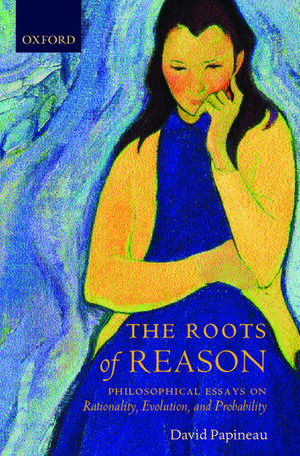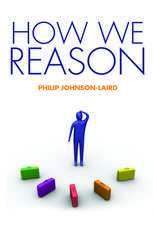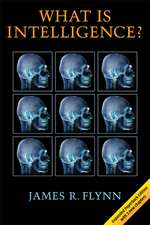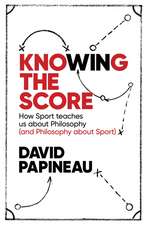The Roots of Reason: Philosophical Essays on Rationality, Evolution, and Probability
David Papineauen Limba Engleză Paperback – 26 ian 2006
Preț: 334.25 lei
Preț vechi: 411.00 lei
-19% Nou
Puncte Express: 501
Preț estimativ în valută:
63.96€ • 66.96$ • 52.92£
63.96€ • 66.96$ • 52.92£
Carte tipărită la comandă
Livrare economică 27 martie-02 aprilie
Preluare comenzi: 021 569.72.76
Specificații
ISBN-13: 9780199288717
ISBN-10: 0199288712
Pagini: 252
Dimensiuni: 135 x 203 x 16 mm
Greutate: 0.3 kg
Editura: Clarendon Press
Colecția Clarendon Press
Locul publicării:Oxford, United Kingdom
ISBN-10: 0199288712
Pagini: 252
Dimensiuni: 135 x 203 x 16 mm
Greutate: 0.3 kg
Editura: Clarendon Press
Colecția Clarendon Press
Locul publicării:Oxford, United Kingdom
Recenzii
The book succeeds at presenting an articulated and coherent view in various areas of epistemology and philosophy of science, treating a series of issues ranging from the foundations of decision theory and probability to various interesting problems in the cognitive sciences. The first three chapters center on classical epistemological issues as well as on certain aspects of the evolution of cognition. Together they present a forceful and original naturalistic account, which, at times, is directly at odds with widespread philosophical views on the nature of content, knowledge and the aims of inquiry. The last three chapters on probability, causation and quantum mechanics form another cohesive part of the book. Even when the topics discussed in these last three chapters are of a more technical nature, they are presented in a very accessible and readable manner.
I thoroughly enjoyed reading this book. Even in partial disagreement with some of its main ideas and presuppositions, I did find the book quite intellectually stimulating and insightful. Can the naturalist find good foundational answers when facing open and interesting problems in the evolution of cognition, the theory of choice and the philosophy of probability? Papineau does a superb job at answering these questions. The book is very well written. Its arguments flow quite naturally and clearly, even in areas where technicalities could have impaired the transparency of the exposition. The book deals with almost all the main puzzles that matter in the area of rational choice as well as with interesting repercussions in broader areas in the philosophy of mind and cognition, evolution and epistemology. I do recommend reading the book to any person with interests overlapping any of these areas.
I thoroughly enjoyed reading this book. Even in partial disagreement with some of its main ideas and presuppositions, I did find the book quite intellectually stimulating and insightful. Can the naturalist find good foundational answers when facing open and interesting problems in the evolution of cognition, the theory of choice and the philosophy of probability? Papineau does a superb job at answering these questions. The book is very well written. Its arguments flow quite naturally and clearly, even in areas where technicalities could have impaired the transparency of the exposition. The book deals with almost all the main puzzles that matter in the area of rational choice as well as with interesting repercussions in broader areas in the philosophy of mind and cognition, evolution and epistemology. I do recommend reading the book to any person with interests overlapping any of these areas.















